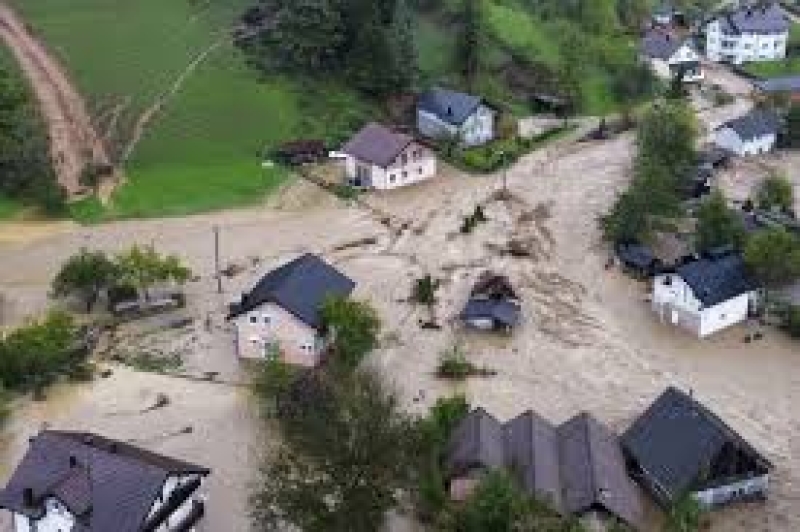- Jamaat Ameer calls meeting with Tarique 'an important moment |
- BNP govt to take office with economy at a crossroads |
- Pahela Falgun brings colour, music as spring begins |
- New MPs, cabinet members to be sworn in Tuesday |
Rainstorms and Floods in Bosnia Kill At Least 14

A severe rainstorm struck Bosnia overnight Friday, killing at least 14 people and flooding several towns and villages in central and southern parts of the country.
Rescue services in the south of the country reported several people missing and called on volunteers and the army to assist as roads were closed and houses left without electricity.
Darko Jukan, a spokesman for the local administration in the southern town of Jablanica, said at least 14 people had died.
Defense Minister Zukan Helez told N1 regional television that troops have been engaged to help and that the casualties were reported.
Helez said that “hour after hour we are receiving news about new victims … We sent everyone we could. Our first priority is to save the people who are alive and buried in houses where the landslides are.”
Rescue services in the towns of Jablanica and Kiseljak said the power was off overnight and cellphone service was down. mobile phones lost their signal.
The Jablanica fire station said that the town was completely inaccessible because roads and trainlines were closed.
“The police informed us that the railroad is also blocked,” the state rescue service said in a statement. “You can’t get in or out of Jablanica at the moment. Landline phones are working, but mobile phones have no signal.”
It urged people not to venture out on the flooded streets.
Human-caused climate change increases the intensity of rainfall because warm air can carry more moisture. This summer, the Balkans were also hit by long-lasting record temperatures, causing a drought. Scientists said the dried-out land has hampered the absorption of floodwaters.
Drone footage broadcast on Bosnian media showed villages and towns completely submerged under water, while videos on social networks showed dramatic scenes of muddy torrents and damaged roads.
Photos show that one of the busiest roads linking Sarajevo with the Adriatic coast via Jablanica was swept into a river together with a railway line in a huge landslide.
“Many people are endangered because of big waters and landslides. There is information about victims and many injured and missing persons,” said the civic protection service.
Authorities urged people to stay on upper floors. Reports said surging waters swept away domestic animals and cars as the water swiftly filled up the lower floors of buildings.
The heavy rains and strong winds were also reported in neighboring Croatia where several roads were closed and the capital of Zagreb prepared for the swollen Sava River to burst its banks, reports UNB.
Heavy winds have hampered traffic in the southern coast of the Adriatic Sea, and flash floods caused by heavy rain threatened several towns and villages in Croatia.
Floods caused by torrential rains were also reported in Montenegro, south of Bosnia, where some villages were cut off and roads and homes flooded.

